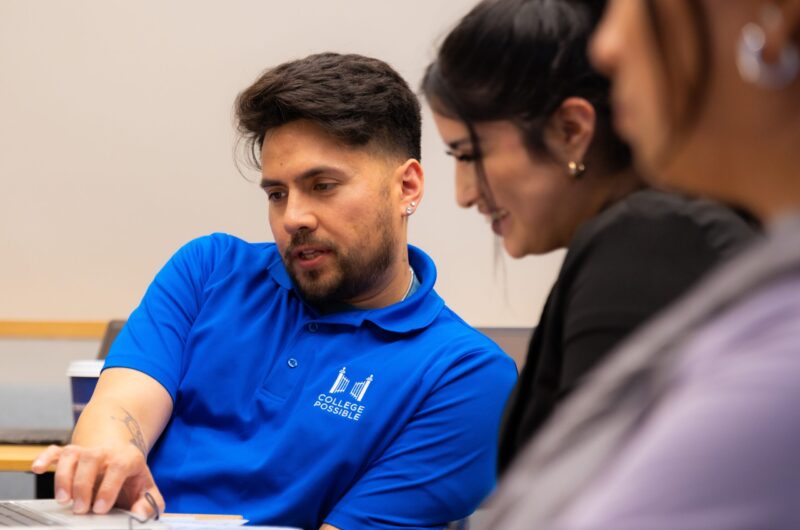During your time in college, you will gain an in-depth knowledge of the skills and information needed for your future professional career. You will also develop the persona, habits and soft skills that you will take into your career. Purposefully developing and exploring your professional identity and behaviors during your time at college will allow you to take advantage of your courses and resources and set you up for success later on in your career as well.
What is and isn’t considered professional has shifted over the past decades, and many contemporary inclusive ideals clash with outdated definitions of what constitutes being professional. Gone are the days when being professional means wearing a suit and tie each day. However, there are professional behaviors that remain important and valuable to cultivate in ourselves. To be clear: “professionalism” should never ask you to change who you are; it should serve to highlight and showcase the very best parts of yourself to others.
Below are a few helpful tips for professionally presenting yourself during your time at college.
Time management
- Have a plan to manage your time. Building a schedule to organize your time is essential during college to ensure you have time for everything.
- Attend each class. Provide your professor or study group as much advance notice as possible if you’re unable to attend.
- Be on time. Be sure to arrive at meetings and class a few minutes early each time. Arriving late regularly will likely be considered disrespectful.
Your virtual identity
Be aware of your online presence. See these tips and tricks to put your best foot forward virtually.
Purposeful communication
- Proofread assignments. Before turning in your assignments, especially papers, proofread them to ensure that the assignment is completed correctly and with accurate grammar/spelling. If you struggle with editing your assignments, make sure spelling and grammar corrections are turned on or use an app such as Grammarly. It’s also great to have a peer in the same class who will swap proofreading with you.
- Reread emails. Before sending an email, read through it to make sure all information is accurate and that your wording is correct. You can also read important emails out loud to check for tone and accuracy or use Microsoft Word speak and read-aloud feature or the speech-to-text feature in Google Docs to listen to your emails read to you.
- Use titles when addressing professors and staff. When first addressing staff or professors, use “Dr.” or “Mr./Mrs./Ms.” instead of using their first name. Professors will likely say what title they prefer. Make a note of this preference in the syllabus.
- Email etiquette. Much of your communication in college will be through email. Several established norms will help your emails be clear, concise, and polite.
Put important information in the subject line. Your subject line should include a summary of what the body of your email will say, like “Carl Forward Exam Conflict 11/2.”
Be Brief. If possible, write your request or important information early and briefly in your email. A sentence or two of greeting or a compliment is fine; just try to keep the rest short and straightforward.
Format Like a Letter. Write a greeting with the recipient’s name at the top and sign your name at the bottom.
Be responsive. If your recipient responds in a way that utilizes specific formatting (perhaps they go straight to the message without a greeting), feel free to respond similarly. Like many professional etiquette guidelines, it’s best to start more formal and adapt to more casual circumstances as needed.
Self reliance
- Read your syllabus. Most of the information needed for each class will be included in your syllabus. Your syllabus outlines all the important dates, class materials, resources you will need. Many students keep their syllabus at the front of their binder or in a folder on their computer for easy editing in case of changes to dates, readings, or expectations. Check your syllabus regularly and reference it before asking a question to your professor.
- Research before asking. In general, searching briefly to answer a question about the class, content, or college regulations is considered a mature approach to your studies and work. It’s always a great idea to briefly see if you can find the answer before asking a professor.
- Take notes. Note-taking is a beneficial skill to ensure that after class, you can access the information from class again. Try different systems to organize your notetaking. If you are struggling with keeping notes, speak to your professor or peers. Many students in college will exchange notes and reference both their own and a friend’s when studying.
Be deliberate
- Give class and meetings your undivided attention – Scrolling your phone or browsing the internet during class not only keeps you from learning information, but it is also considered rude. Do your best to pay attention and participate.
- Share what you care about. College is a great time to explore and deepen what is important to you. Joining clubs, attending events, and writing articles for school papers are just a few ways to get your voice out there and share the things you believe are essential.
Other recommendations
- Create a resume. Having an up-to-date resume ready will help you keep track of your accomplishments and come in handy when applying for jobs, internships, and more. Check out our resource on writing a great resume.
- Dress appropriately. Many students roll out of bed and run to class, wearing sweatpants and a t-shirt. Observe the dress around you in different environments to see expectations. Your self-expression and identity are important when you decide how to dress. College can also be a great time to experiment with different styles. If you are unsure how to dress for an occasion or space, it is a good idea to dress a bit more formally than you think is necessary.
- Build your network. College is a great time to make connections and build a professional network that will support you throughout your time in college and into your career pathway. Keep all of your professors’ and other mentors’ contact information on hand and do your best to keep in touch with them on a professional basis. It is very possible you will be reaching out to them to serve as a recommender on your behalf for future opportunities.



